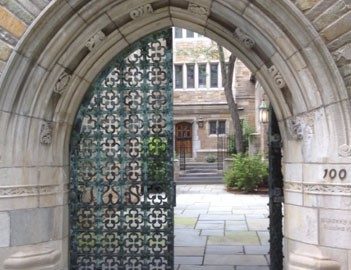Yale’s New Essay Topics
Most elite colleges and universities require supplemental essays in addition to the essays that are part of the Common App or the application of the Coalition for Access and Affordability. A school’s essay topics may change from time to time to reflect changes in the experiences or condition of that institution in the recent past.
An example of this essay topic-shifting phenomenon is Yale. For many years, Yale applicants were asked to, “Reflect on something you would like us to know about you.” This was viewed as an invitation to describe what applicants considered made them worthy of acceptance aside from their academic credentials. In 2016, however, Yale issued three new supplemental essay topics. Applicants are to respond to two of the three topics in no more than 200 words each. The new Yale topics for the Common App are as follows:
- What is a community to which you belong? Reflect on the footprint that you have left. (You may define community and footprint in any way you like.)
- Reflect on a time in the last few years when you felt genuine excitement learning about something.
- Write about something that you love to do.
The Coalition Application requires only one response to either of the first two topics. Applicants are asked to choose a file to upload (audio, document, image, or video) that they have created in the last four years that is meaningful to them and related to one of the first two topics. In no more than 250 words, they are to reflect on why they chose to share this particular file and to describe how it relates to the topic they have chosen.
In response to the first topic, applicants using either app can choose to write about how their actions have had an impact on their community. Yale’s Dean of Undergraduate Admissions, Jeremiah Quinlan, in announcing the change, said that, “We want to send a message to our applicants that Yale expects its students to be engaged citizens in our diverse community.”
This essay topic was formulated, in part, in response to a study by the Harvard Graduate School of Education, which questioned the spirit of volunteerism by today’s college applicants. Quinlan was one of many “endorsers” of the report, entitled Turning the Tide: Inspiring Concern for Others and the Common Good through College Admissions.
The relevant philosophy underpinning this study was set forth by Richard Weissbourd, senior lecturer at the Harvard Graduate School of Education and co-director of the Making Caring Common Project, as follows:
“Too often, today’s culture sends young people messages that emphasize personal success rather than concern for others and the common good. As a rite of passage, college admissions play a powerful role in shaping student attitudes and behaviors. Admissions deans are stepping up collectively to underscore the importance of meaningful engagement in communities and greater equity for economically diverse students.”
Applicants are not required to choose the “community…footprint” topic and can select the other two instead. One would assume that Yale admissions officers would welcome a demonstration, though, of the applicant’s selflessness and desire to give back to the community. Though community service is an obvious example of this spirit of volunteerism, a demonstration of leadership in a club or group could make an equally compelling essay.
IvySelect’s specialized knowledge of top-tier schools is especially helpful to students when it comes to preparing school-specific supplemental essays such as those at Yale. We have developed a nuanced understanding of the characteristics that differentiate the preferences of admissions offices at Ivy League and other top colleges.
Essays often play a significant role in an applicant’s chances for admission to an elite institution. With our expert knowledge of the admissions practices of Ivy League and similarly elite universities, we help students craft top-quality, school-specific essays that demonstrate an appreciation of what each school seeks.




